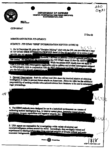Media bias in South Asia
Claims of Media bias in South Asia attract constant attention. The question of bias in South Asian media is also of great interest to people living outside of South Asia. Some accusations of media bias are motivated by a disinterested desire for truth, some are politically motivated. Media bias occurs in television, newspapers, school books and other media.
India
There have been claims that the history of the Islamic invasion and its atrocities on India is being systematically whitewashed and censored in Indian school-books and in other media[1]
Many media stations in India provided vast coverage of the Gujarat Riots in 2002 in which a large number of Muslims were murdered but have often failed to report on the persecution of Hindus in Muslim-dominated Jammu & Kashmir. There are also denials of the fact that Indians in general and Hindus in particular are being ethnically cleansed in Kashmir. With regard to the 2002 Gujarat violence, some commentators have pointed out a disregard for factual reporting on the part of what they term "left-liberal" newspapers.[2]
Pakistan
There are serious demographic issues regarding the minority non-Islam population in Pakistan. The Christian, Hindu, and Sikh populations have gone from 23% to 2% in the period 1947-1997. International rights groups, like the Center for Indian Studies at the University of Massachusetts, Dartmouth, call this ethnic cleansing and accuse the media of not informing the public about these issues.[3]
There are also allegations by Amnesty International that the local media some times glosses over reports of persecution against the non-Islamic population in Pakistan.[4]
Sri Lanka
The government of Sri Lanka has been accused of controlling the media. Measures like the Public Security Ordinance and the Sixth Amendment to the Sri Lankan Constitution have been accused of limiting a reporters freedom.
The Sixth Amendment to Sri Lanka's constitution, inserted as Article 157A, has been accused of threatening civic disability and seizing of property by banning promotion of separatism. The Public Security Ordinance (PSO) law is often applied liberally when the government applies emergency regulations. This is quite often as Sri Lanka has been ruled under Emergency for a cumulative total of over 20 years since it gained independence from the British. The Saturday Review, the English paper published in Jaffna and the Aththa, the Communist Sinhala language daily were banned in the early eighties under the PSO. When the Aththa was banned its press was also sealed. In the seventies, the government sealed the printing press of the Independent Newspapers Ltd. (Davasa Group) by using the emergency regulations.
Under the Emergency Regulations (E.R), all material relating to a subject specified in a gazetted presidential proclamation, has to be submitted for censoring by a 'competent authority.' The 'competent authority' is usually politically favoured civil servant. Recently, the regime made history by appointing a military officer as the government censor. Material censored under such provisions has included comment on the high cost of living, on the dismissal of an employee of a state corporation, allegedly for an article he wrote for his trade union journal, on the marketing problems of passion fruit growers, criticism of a minister's statement in Parliament about a public corporation, and a reference to an alleged assault on two civilians .
See also
- Media bias
- Media bias in the United States
- Media bias in the Middle East
- Censorship in South Asia
- Indian journalists
References
- ↑ Review by CJS Wallia, indiastar.com
- ↑ Left-liberal media subverts truth Daily Pioneer - August 7, 2011
- ↑ "Archived copy". Archived from the original on 2006-07-18. Retrieved 2006-12-08.
- ↑ http://web.amnesty.org/library/Index/ENGASA330082001?open&of=ENG-PAK
External links
- saag Bangladesh
- Indymedia, India
- Arun Shourie on "Eminent historians"
- Historians versus history - Ram Swarup
- Amnesty International
